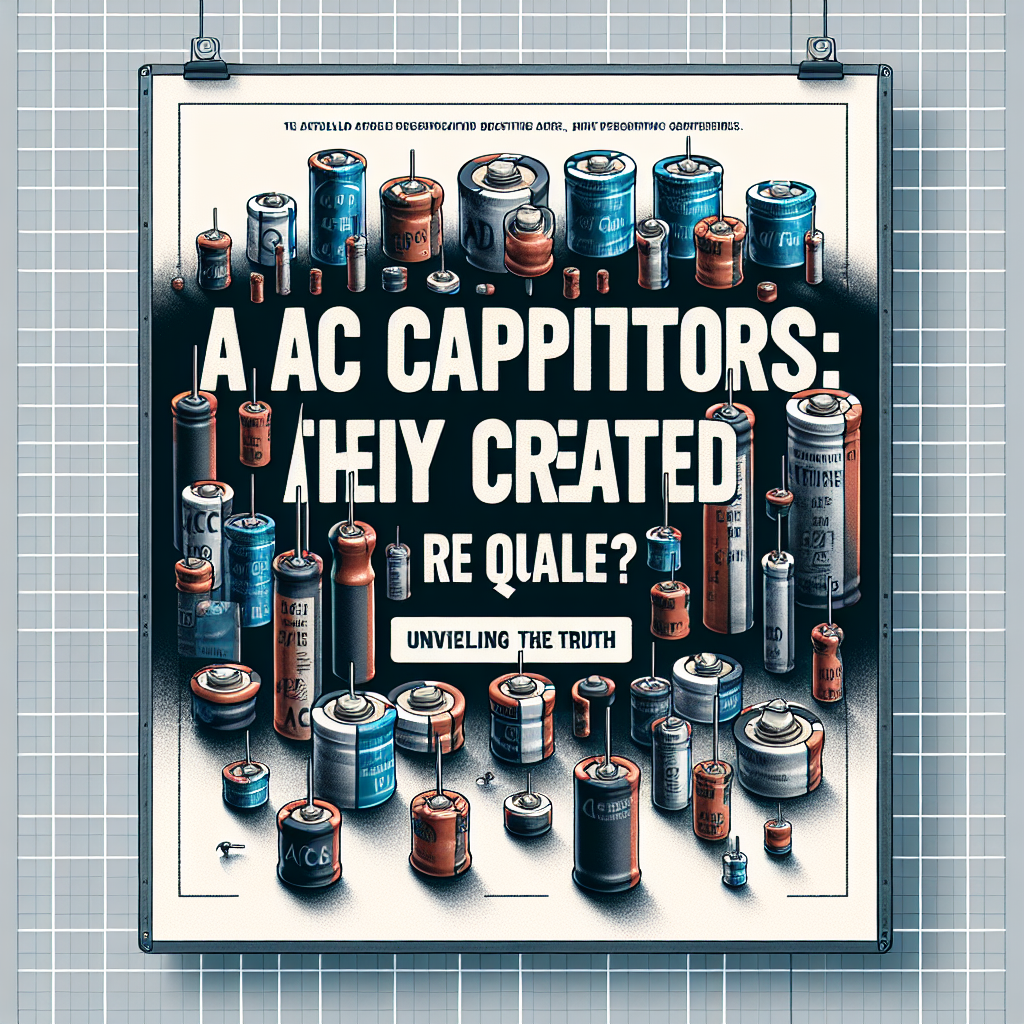All AC Capacitors: Are They Created Equal?
When it comes to air conditioning units, the role of capacitors is often underestimated. These tiny components are crucial in ensuring your AC system operates efficiently. But a common question arises in the HVAC community: All AC capacitors: are they created equal? In this article, we will delve into the types of capacitors used in air conditioning, their functions, and the vital differences that set them apart.
Understanding AC Capacitors
An air conditioning system typically consists of several electrical components that work together to provide cooling. Among these components, capacitors play a significant role. They store electrical energy and provide the necessary power boost to start the compressor and fan motors.
Types of AC Capacitors
When discussing all AC capacitors: are they created equal?, it’s essential to recognize that there are various types of capacitors designed for different functions. The most common types include:
-
Start Capacitors: These capacitors provide a necessary jolt of electricity to start the compressor. Once the unit is up and running, the start capacitor typically disengages.
-
Run Capacitors: Continuous power is supplied to the compressor motor with run capacitors. They help regulate voltage and ensure consistent performance during operation.
- Dual Run Capacitors: Combining both start and run capacitor functions, dual run capacitors are commonly found in many HVAC systems. They simplify the construction by housing both functionalities in a single unit.
Key Differences Between Capacitors
One of the primary reasons HVAC experts debate the equality of capacitors is the construction and quality of materials used in different units. While all AC capacitors serve the same primary functions, their construction materials, tolerances, and ratings can vary significantly.
-
Material Quality: High-quality capacitors often use premium materials, which lead to better durability and longer life spans. Lower-quality capacitors may fail sooner, causing system inefficiencies.
-
Voltage Rating: Capacitors come with different voltage ratings, which can affect their performance and reliability. Installing a capacitor with an inadequate voltage rating can lead to overheating and eventual failure.
- Capacitance Values: Capacitors are rated in microfarads (µF). The capacitance value must match the specifications of your AC unit. Using a capacitor with an improper capacitance can impair the system’s functionality.
Reliability and Performance
When considering all AC capacitors: are they created equal?, reliability is another vital factor. Higher-quality capacitors come from well-reviewed manufacturers who follow stringent quality control processes. These capacitors often provide better performance and longer operational life, reducing your maintenance costs and energy consumption in the long run.
Brands and Manufacturer Standards
The market is flooded with various capacitor brands, each with different levels of quality. Choosing a reputable brand can significantly impact the performance of your HVAC system. Researching and selecting capacitors that meet or exceed OEM (Original Equipment Manufacturer) specifications ensures you’ll have a reliable product.
Conclusion
To answer the question, all AC capacitors: are they created equal? the clear answer is no. While they may serve the same basic functions, the differences in quality, voltage ratings, capacitance values, and manufacturer standards can greatly affect performance and longevity. When choosing capacitors for your air conditioning system, it’s essential to invest in high-quality components to ensure optimal efficiency and reliability.
By understanding these critical distinctions, you can make more informed decisions for your HVAC needs, ensuring your system runs smoothly and efficiently for years to come.

